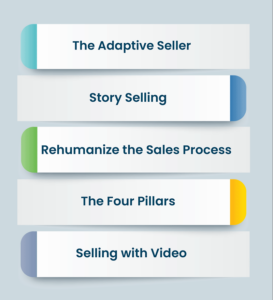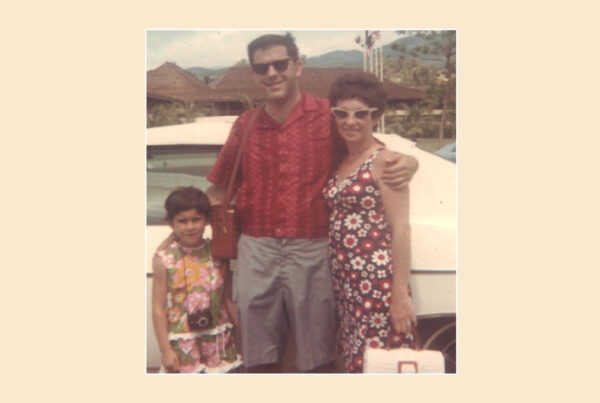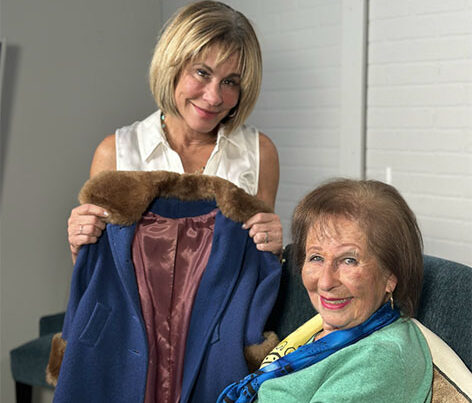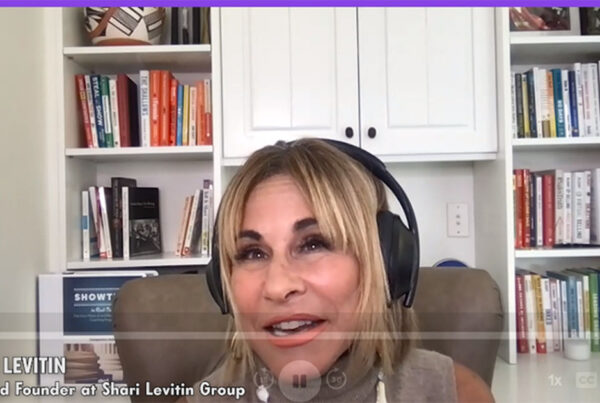Secrets the BEST presenters learn from the BEST teachers at the BEST universities.
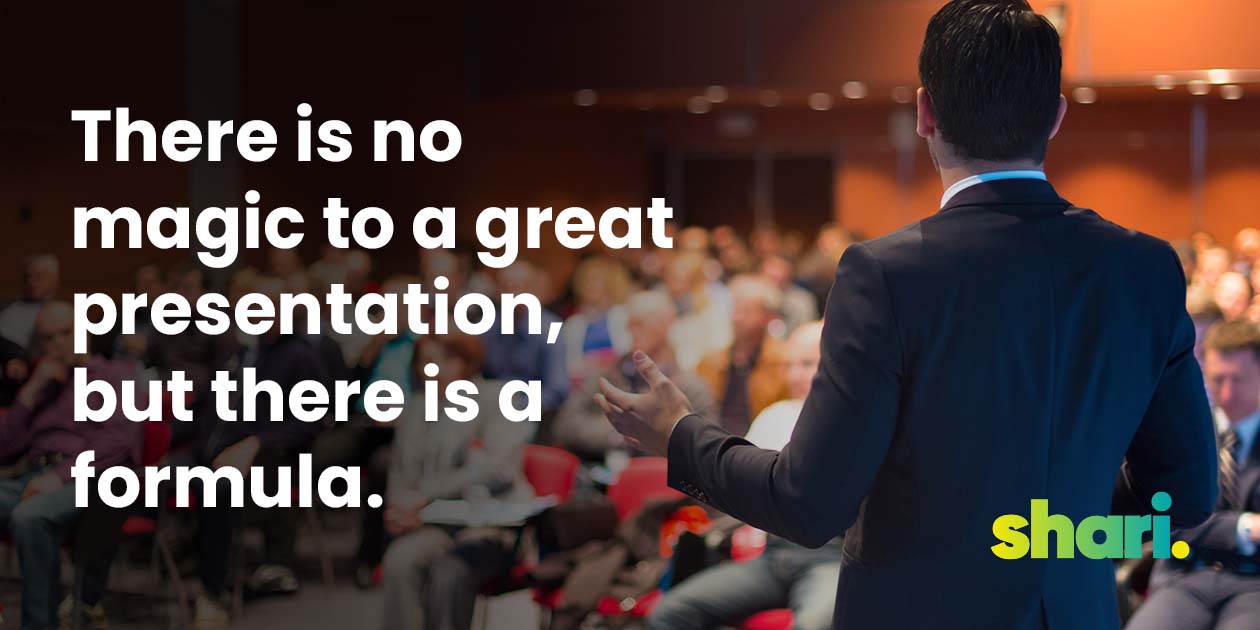
Whether you own the title CEO, entrepreneur, executive, seller, enablement leader, or even “Father of the Bride” – at some point you are going to be asked to give a big (important) presentation. In that moment (after the nervousness dies down), you’ll likely ask yourself: “How do I ensure my message is conveyed properly?”
A single presentation practiced and told well can literally create seven figures in revenue, aid a new manager in getting promoted (this happened to someone I recently coached at Salesforce.com), help a start-up secure funding, clinch a difficult sale, or help Dad give the “best toast ever” at his daughter’s wedding.
When I announced 8 years ago that I was taking a “public speaking” course at Stanford University, many of my friends and colleagues were confused. They asked:
- “Why would you spend the money?”
- “What are you going to get out of it?”
- (or the more disparaging) “Come on…is that an ego thing?”
It was none of those.
I’ve been speaking and training professionally for over 20 years, but the truth is, it bothered me that sometimes my speeches landed like a perfectly thrown dart – while other times, the audience seemed to prefer reading five-year-old text messages.
Sure, I could have done what I did at the beginning of my sales career and played the blame game: “It was the wrong audience…The economy is bad…My Venus is in retrograde.” But, what good would that do?
My first day of class at Stanford was marked by new feelings of imposter syndrome. By the last day, I took with me three notebooks of new ideas, a renewed sense of confidence, and a friend and mentor for life, my speaking coach Lee Eisler.
I could write a book on what I learned from my mentor and coach – but here are my top five tips for a great presentation.
1. How Do You Want Your Audience to Feel?
I used to get so nervous before a keynote speech that I couldn’t sleep the night before. Ummm…this still happens sometimes. (Don’t judge me! Barbra Streisand says in her memoir she still throws up before going on stage to sing.)
That’s when Lee told me to stop thinking about what I wanted to say: the words, the intonation, the staging, etc. Instead, ask myself, “How do you want your audience to feel?” What do you want them to:
- Think,
- Feel, and
- Do (at the end of your talk?)
Everything changes when you shift your focus from what you want to say – to how you want people to feel. Your words are now about them and how to make their lives better. When you shift your focus, your nerves will calm, and your heart will open.
2. Focus on an Audience of ONE
The bigger the audience, the more daunting the presentation can seem to be. Everyone in attendance has a similar reason for being at the presentation (same company, same job, same interest, same family, etc.), but they all arrive with different perspectives, different experiences, different emotions, and different values.
How do you relate to all of them? By focusing on just ONE of them.
Who is the persona you are speaking to? Or better yet, the person who needs to hear your message? Focus on what thoughts they are having. What motivates them? What are they afraid of? What are they worried about? What do they want to achieve? Envision presenting only to him or her, and you’ll resonate with the collective.
3. Say A Lot About A Little
As you sit down and start creating your presentation (your fingers hovering over the keyboard or pen poised in your hand like a maestro before a symphony orchestra), and you are thinking about how to address: the state of hybrid work, the effects of the economic downturn on Fortune 500 companies, how to properly implement DEI initiatives, and how to solve world hunger – STOP.
Too often, too much is said about too many things.
It’s impossible to address all of the issues faced by the C-suite executives AND the frontline employees. Just like the Father of the bride cannot address all of the components of a happy marriage in a wedding toast. My coach told me, “It’s better to say a lot about a little, than a little about a lot.” Pick a “main message” and hammer it home.
4. Don’t Veer Off Track
For years, I tried to figure out how to shove in proven stories, classic anecdotes, and time-tested one-liners, whether they fit the overall purpose of the presentations or not. I’d ask myself: “Where can I plug in my ‘Eduardo Story’? You know, the one about telling a customer how a product works rather than how it will make them feel?”
It worked before; surely, I’ll get a laugh again.
When crafting a meaningful presentation, don’t veer off track! Keep the main thing – the main thing. Pick a theme, stay on it, and don’t waver outside the lines.
5. Aim for The Punchline
I still practice and create stories using the storytelling framework Lee taught me. Some have gone viral, partly because the punchline (like a joke) is memorable and tweetable. Below is an example of a viral post that has gotten millions of views on Instagram with the punchline – ”If you change your self-talk, you’ll change your life.”
Before people decide what they think of your message, they decide what they think of you.
While many trainers speak of storytelling in sales, Lee’s ideas and frameworks of punchlines transform the stories of the most experienced storytellers. The idea, while simple, can take hours to perfect: A story, like a joke, needs a punchline, a tweetable, and a main point. You begin with the punchline and carefully work backward.
See an Example of the Presentation Tips in Action!
If you want to see first-hand how I incorporate these skills into speaking engagements, check out my Keynote speeches for 2024:
- The Adaptive Seller: How to Sell the Way Customer Buy
- StorySelling: How to Build Trust and Boost Sales
- Bridge the A.I. Gap: How to ReHumanize the Sales Process
- The Four Pillars: How to Effectively Train and Coach Your Team
- Selling with Video: How to Craft a Cinematic Sales Strategy
Learn more at: https://get.sharilevitin.com/sales-keynote-speaker

